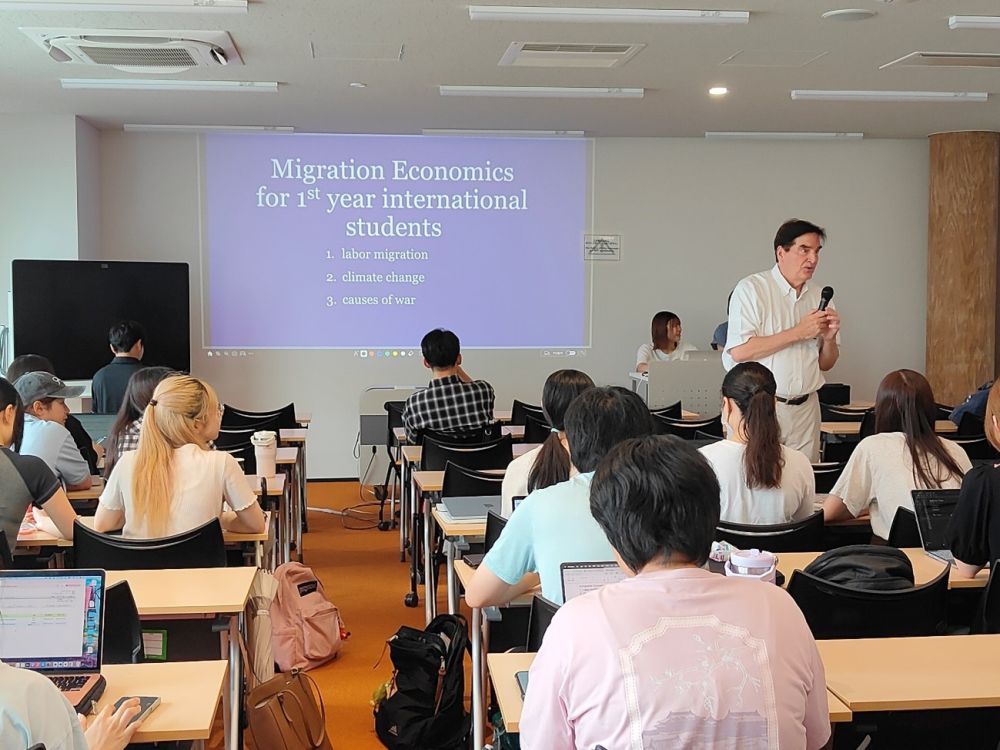
Professor David McMurray is a distinguished professor of intercultural studies at The International University of Kagoshima (IUK), where he specializes in Business English, Global English, and International Business. He also oversees overseas internships in Taipei and Kaohsiung, supervises MA theses on hospitality, and teaches English education to Ph.D. candidates. With a background in finance—including roles such as CFO for the Canada Ports Corporation and Director of Finance for institutions in Ottawa, Toronto, and Taipei—he brings a global, interdisciplinary perspective to his work. An accomplished geopolitical strategist and haiku expert, Professor McMurray has authored 15 books and writes a weekly column for the Asahi Shimbun. He has judged haiku contests for organizations such as the Ministry of Foreign Affairs, Itoen Tea Company, and several Japanese universities.
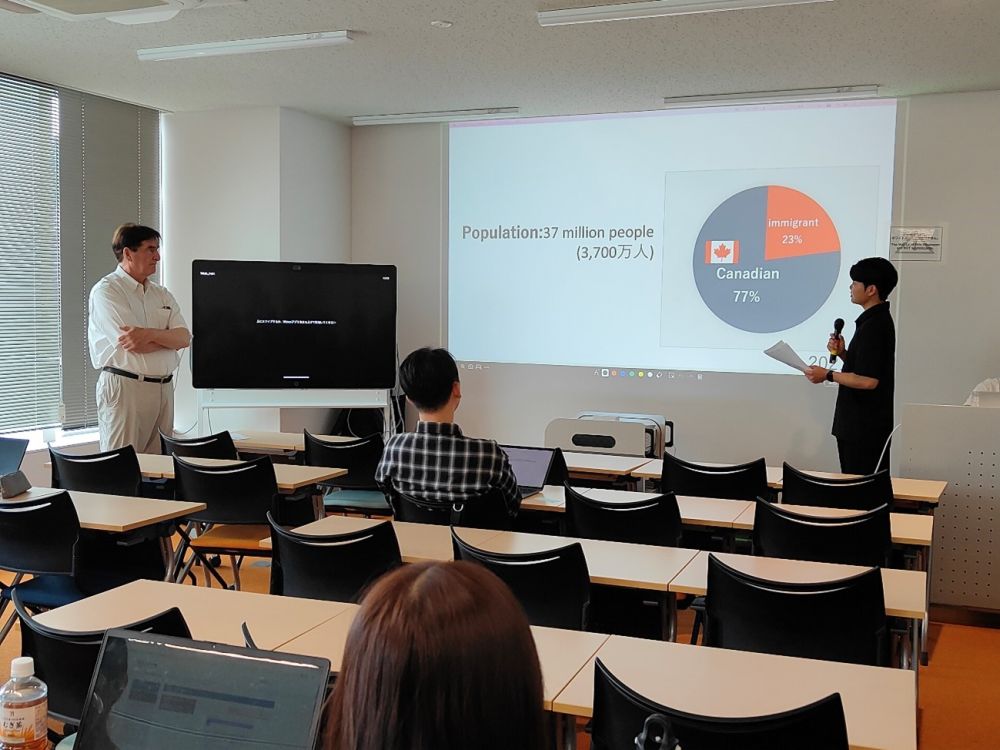
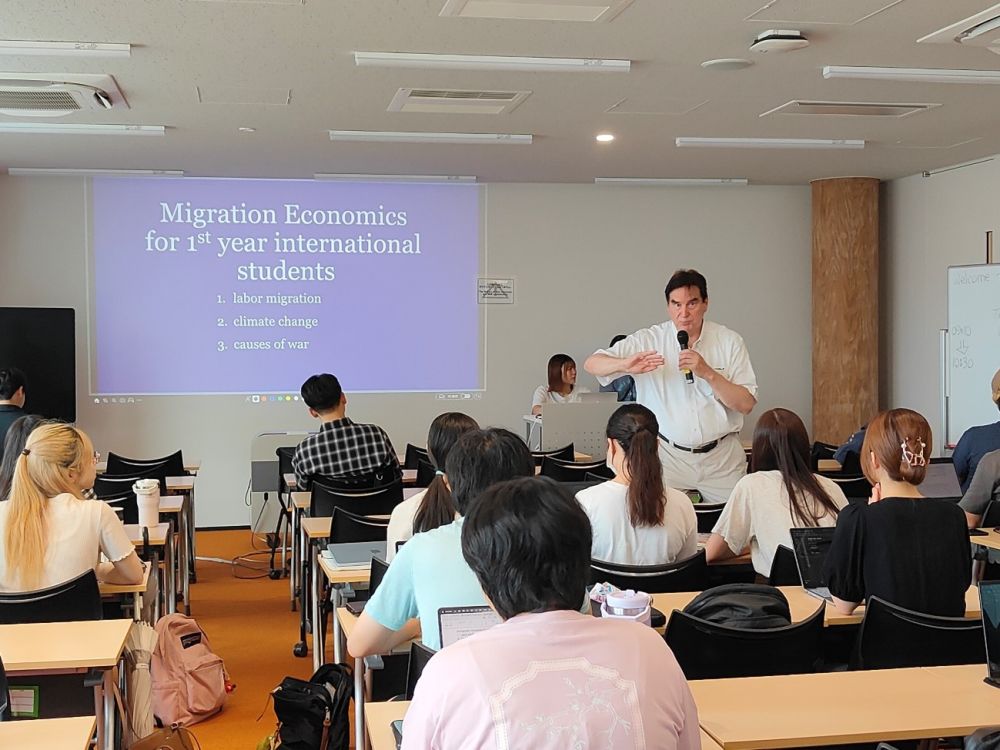
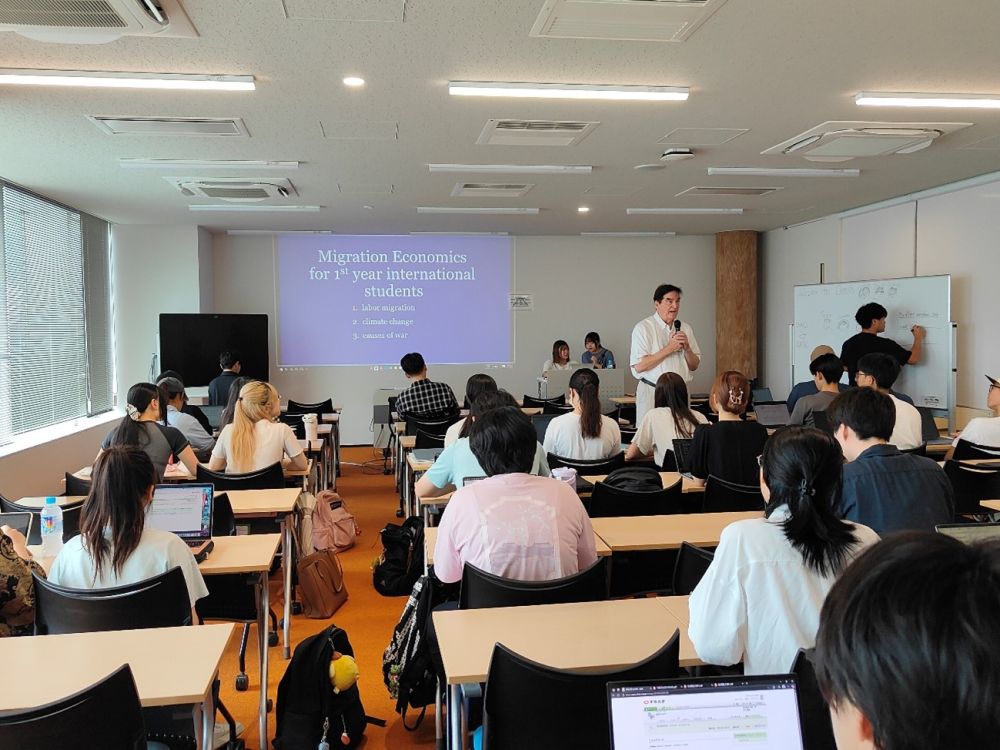
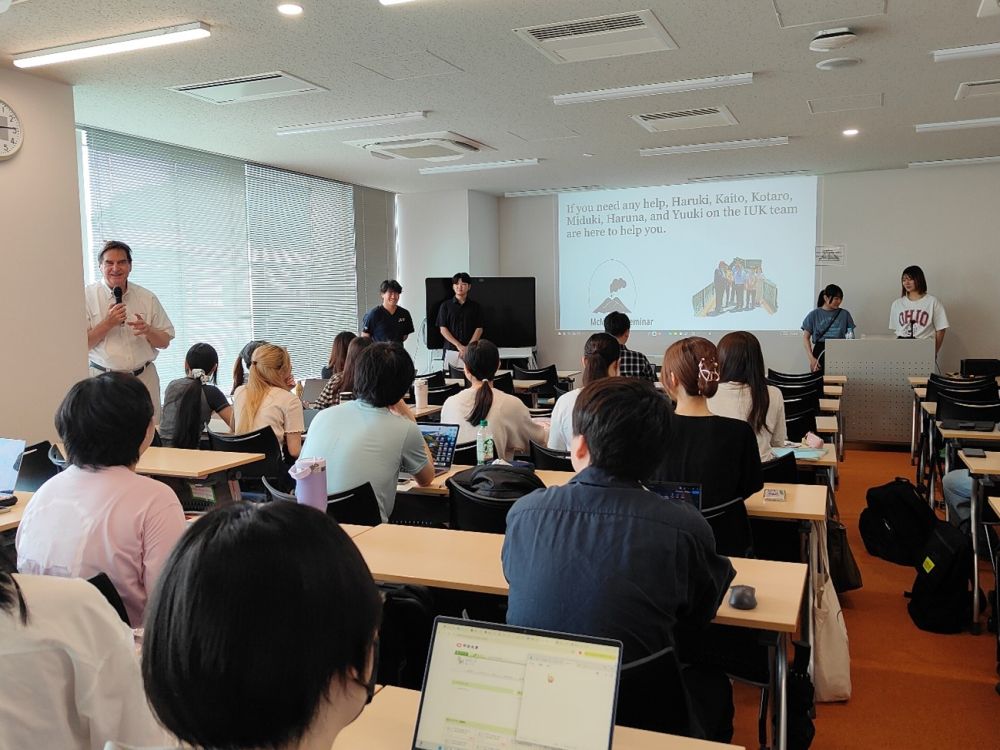
The speech introduced key concepts from introductory economics, focusing on how societies allocate scarce resources through market mechanisms. It covered foundational topics such as supply and demand, different types of market competition, taxation, international trade, and monetary policy. The speaker emphasized the distinction between microeconomics—studying the behavior of individual consumers and firms—and macroeconomics, which examines national and global economic trends, including inflation, unemployment, and interest rates. This foundational knowledge sets the stage for understanding more complex global issues such as migration.
Building on this, the speech explored the economics of migration, highlighting how global events like climate change and the COVID-19 pandemic have intensified population movements. It explained the difference between migrants and immigrants, and introduced “push” and “pull” factors—such as conflict, food insecurity, and better education opportunities—that influence migration decisions.
The speaker also connected these dynamics to real-world challenges, urging students to consider how economic principles can help analyze and address the impact of large-scale migration on local and global economies. A haiku about swans returning home was shared to symbolically express the emotional and cyclical nature of migration.
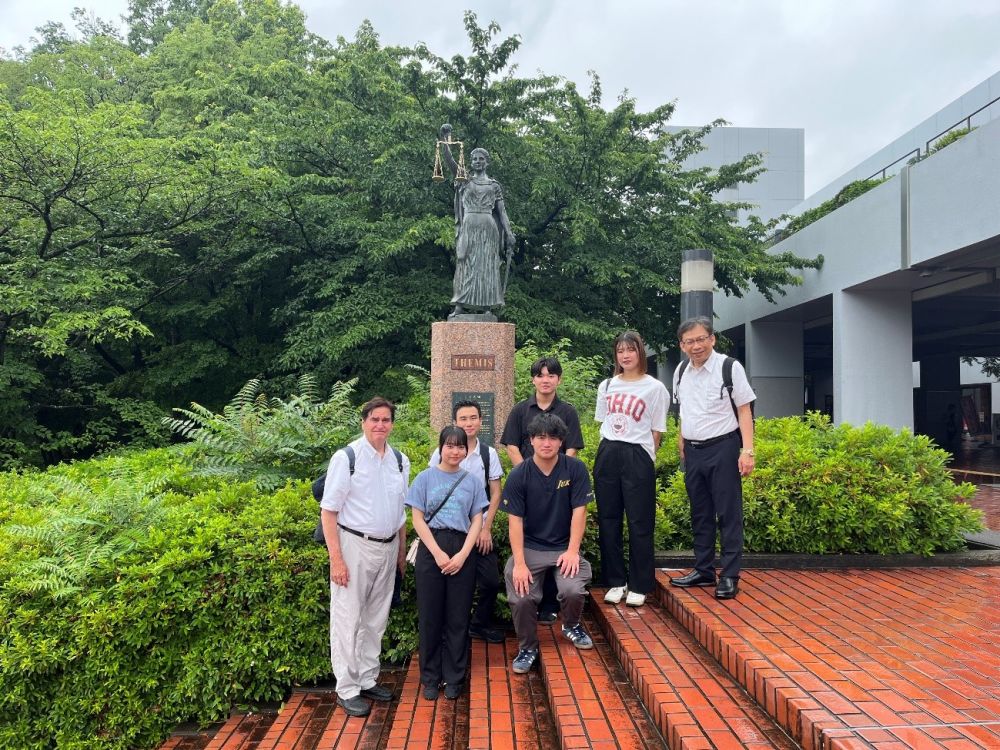
From the left: prof. David McMurray, students from IUK, prof. George Wang
